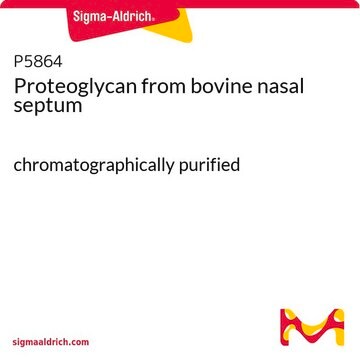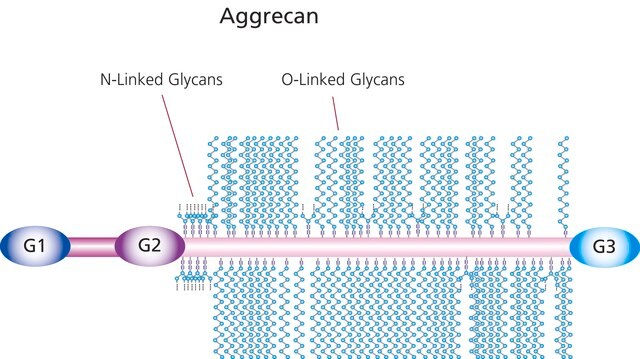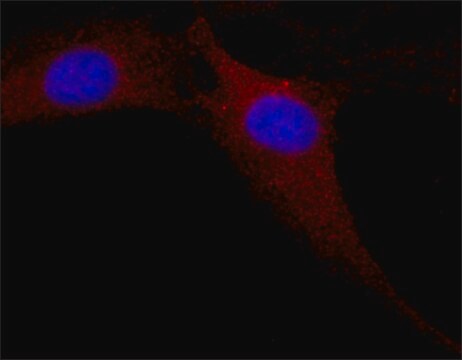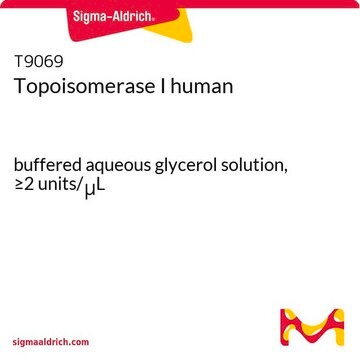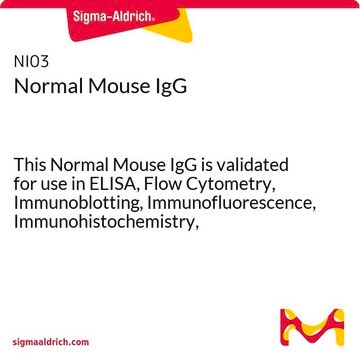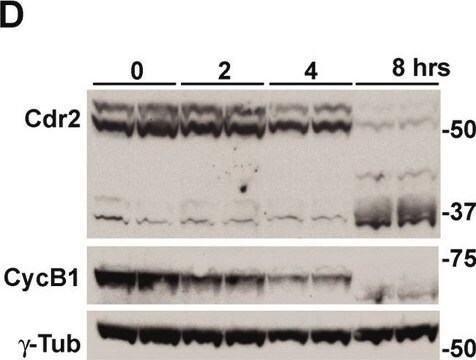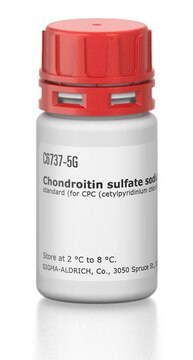CC117
Chicken Extracellular Chondroitin Sulfate Proteoglycans
Synonym(s):
Chicken Chondroitin Proteoglycans, Chondroitin Sulfate Proteoglycans, Extracellular Proteoglycans
About This Item
Recommended Products
biological source
chicken
Quality Level
100
300
Assay
95%
form
liquid
mol wt
<400 kDa
manufacturer/tradename
Chemicon®
concentration
1 mg/mL
technique(s)
cell culture | mammalian: suitable
input
sample type hematopoietic stem cell(s)
sample type induced pluripotent stem cell(s)
sample type: mouse embryonic stem cell(s)
sample type epithelial cells
sample type pancreatic stem cell(s)
sample type neural stem cell(s)
sample type mesenchymal stem cell(s)
shipped in
dry ice
storage temp.
−20°C
Gene Information
chicken ... VCAN(395565)
General description
Although aggrecan was traditionally thought of as a cartilage proteoglycan and neurocan and phosphacan were thought of as neural proteoglycans, recent studies indicate that all four of these proteoglycans have broad yet distinctive distribution patterns inearly embryos. The presence of these proteoglycans has not been carefully examined in adult tissue beyond the expected sites. These proteoglycans are anti-adhesion molecules and are capable of inhibiting both cell-ECM and cell-cell adhesion.
*Quantity: Protein as determined using the bicinchoninic acid (BCA) assay. Note that 100 μg is a measurement of core polypeptides. Components of this mixture contain core polypeptide plus attached glycosaminoglycans
Application
Physical form
Storage and Stability
Analysis Note
HOMOGENEITY:
By PAGE analysis material is 95% pure, and migrates as a large HMW (<400kDa) mass under reduced conditions. The precise amounts of CSPG species has not been determined.
Legal Information
Disclaimer
Storage Class Code
12 - Non Combustible Liquids
WGK
WGK 2
Flash Point(F)
Not applicable
Flash Point(C)
Not applicable
Certificates of Analysis (COA)
Search for Certificates of Analysis (COA) by entering the products Lot/Batch Number. Lot and Batch Numbers can be found on a product’s label following the words ‘Lot’ or ‘Batch’.
Already Own This Product?
Find documentation for the products that you have recently purchased in the Document Library.
Customers Also Viewed
Protocols
This page covers the ECM coating protocols developed for four types of ECMs on Millicell®-CM inserts, Collagen Type 1, Fibronectin, Laminin, and Matrigel.
Our team of scientists has experience in all areas of research including Life Science, Material Science, Chemical Synthesis, Chromatography, Analytical and many others.
Contact Technical Service